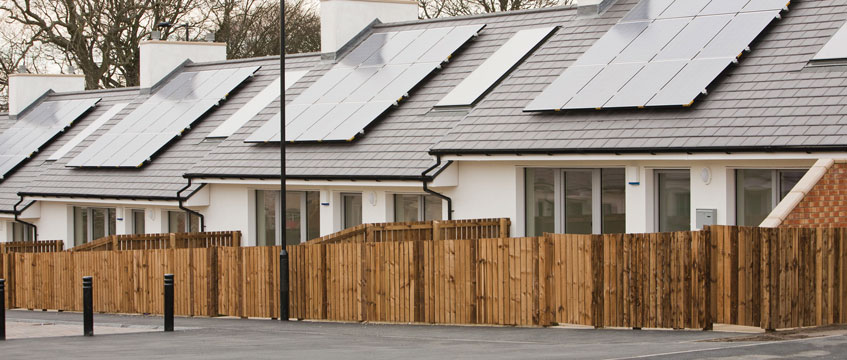COMMENT: 2022 is set to be the year that the “social” in “environmental, social and governance” comes into focus, with economic prosperity identified at COP26 as a critical factor in the transition to net zero. Pressure from the pandemic, rising living costs, supplier issues and a focus on a just transition are accelerating efforts, paving the way for a more socially responsible commercial real estate industry. This is already being seen in the growth in the impact investment market and the sector tackling issues such as housing and supported living.
Regional and global scrutiny
With the UK having one of the highest levels of regional inequality among developed economies, real estate has a key role to play in the levelling up agenda and town centre regeneration. Impact investment should help to tackle this significant social issue, with a focus on positive social and environmental impacts, not just financial returns. The UK has increased impact investment by almost eightfold over nine years to £6.4bn, and the recently published Levelling Up white paper will help to focus government spending on tackling regional inequalities, providing an opportunity for the industry to help tackle its disparities.
What is already clear in 2022 is the scrutiny on the value chain and human rights. Already more than 100 companies and investors have called for effective EU corporate accountability legislation and the urgent adoption of proposals on mandatory human rights and environmental due diligence. Human rights have been a focus across the globe, and this builds on recent activity, such as laws passed in Germany and Norway in 2021 requiring supplier due diligence audits with similar legislation.
The Principles of Responsible Investment also launched a new human rights initiative for investors at the end of last year, which is based on a three-step process for investors to demonstrate their respect for human rights, including having due diligence processes in place. Human rights are a material issue for the UK real estate sector: it directly contributes more than £100bn to the UK’s economy and employs over 1.2m people, with funding more likely to go to those that have processes in place.
Standardised reporting
To address the current lack of definitions and standardisations of what can be classified as a social investment, the Platform on Sustainable Finance has published a draft report on a proposed social taxonomy. This details technical screening criteria on what activities are socially sustainable: defining social objectives, substantial contributions to achieving these objectives, and criteria that applies the principle of not doing any significant harm. A similar model is under consultation in the UK by the Financial Conduct Authority, which will lead to increased reporting by business on the risks their activities might pose to people. As with impact investment, this legislation is expected to direct additional funding to housing in both the UK and EU – responding to the lack of housing affordability across many European cities.
Linked to this is a drive to improve reporting based on a more standardised framework. This can be a challenge in the social impact space, where various data sets and methodologies are used, and instead there will be more focus on the social impact process and avoiding over assertions. False environmental claims are already being challenged: last year saw the first alleged greenwashing litigation case in Italy (Alcantara Spa v Miko Srl), while in the UK, the Competition and Markets Authority’s publication of guidance on environmental claims on goods and services will accelerate reviews of misleading green claims. It will be interesting to see if this will be extended to “social washing” claims.
We have welcomed the challenge from clients on how to provide credibility and assurance on their approach to social impact, encouraging organisations to obtain third-party independent verification of their social value credentials. Alongside the UKGBC testing its social value framework with industry peers, there is an opportunity to share and learn from best practice and improve social impact as an industry, while recognising that social impact is unique to each development, asset or investment.
People power
There is growing awareness and pressure of sustainability issues by institutional investors and the wider public, and so it is shareholder activism and employee/stakeholder pressure, not just legislation, that will keep ESG issues on the agenda. For example, 87% of surveyed investors saw increased demand for healthy buildings, while 75% of workers (rising to 80% for under 45s) say they expect their employer to be a force for good in society.
One of the biggest challenges and opportunities this year is employee attraction and retention, against a backdrop of increasing costs and a changing workplace. Competition for employees with the right skills is fierce, however this is an opportunity for the industry to become much more diverse and to create an inclusive working environment focused on employee wellbeing and with fair pay that challenges the ethnicity pay gap; according to a new study by networking group People Like Us and Censuswide, largely, workers from Black, Asian and ethnic minority backgrounds are paid just 84% of what their white colleagues earn.
ESG will continue to increase in prominence through the decisions being made across the real estate sector, but we must ensure that the transition to a net zero carbon economy is fair and just for all by standardising the frameworks and legislation that govern it, so that we can collectively use buildings to best serve communities and tackle social inequalities.
Jonathan Brookes ia an associate at JLL. Philip Hirst is director, upstream sustainability services at JLL








